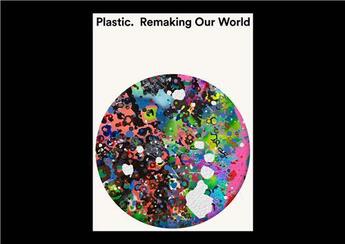-
Date de parution : 31/03/2022
-
Editeur :
Vitra Design
-
EAN : 9783945852477
-
Série :
(-)
-
Support :
Papier
Résumé:
Plastic has shaped our daily lives like no other material. Originally associated with convenience, progress, even revolution, today plastic seems to have lost its utopian appeal. Plastic is everywhere, yet most conspicuous as waste and as a key factor in the global environmental crisis. This... Voir plus
Plastic has shaped our daily lives like no other material. Originally associated with convenience, progress, even revolution, today plastic seems to have lost its utopian appeal. Plastic is everywhere, yet most conspicuous as waste and as a key factor in the global environmental crisis. This book examines the success story of plastic in the twentieth century and at the same time presents the different discourses on how we should manage the waste the material produces and also find solutions that take into account its entire life cycle in the future.
Mark Miodownik, Susan Freinkel, and Nanjala Nyabola each contribute an essay that sheds light on the history of plastics from 1850 to today. A material-rich visual chronology illustrates how consumers' perception of plastics has changed over the decades. Brief descriptions of a selection of 50 objects examine the importance of plastics for material culture. Reprints of fundamental texts about the history of plastics-for example by Alexander Parkes and Roland Barthes-provide a context from the history of ideas.
The book reflects the current discourse and state of research on plastic with numerous individual interviews and panel discussions that were held with designers, representatives from industry, researchers, and environmental activists. Underpinning these conversations are comprehensive data visualizations on plastic production and consumption, recycling.
Donner votre avis














